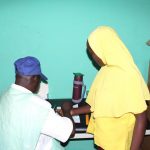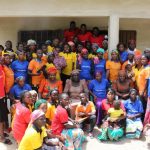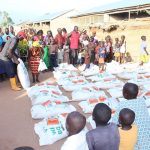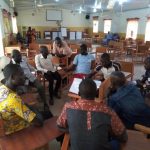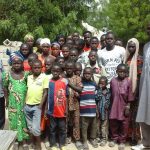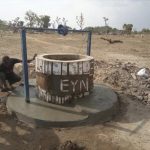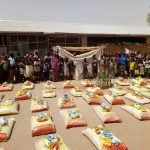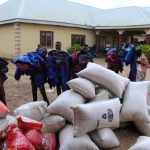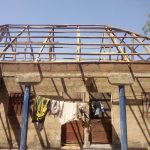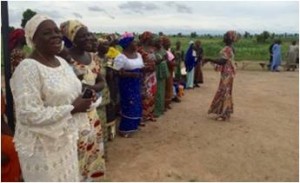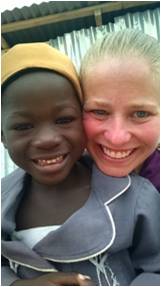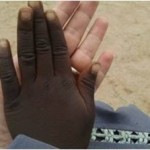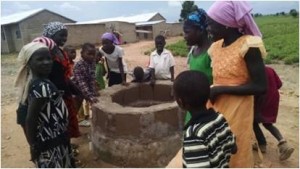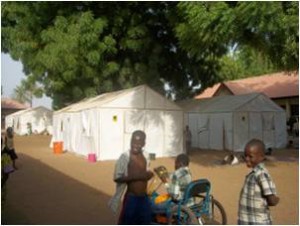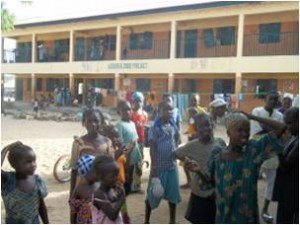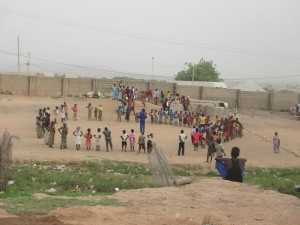While in Maiduguri recently, Carl and Roxane Hill visited various Internally Displaced Person (IDP) camps, drove through the city, toured the largest EYN church and interviewed a peace activist. Here are some pictures and stories.
Markus Gamache introduced us to Gambo Muhammed in Maiduguri. He is a young man with a passion to see peace restored to his home in northeast Nigeria’s largest city. Maiduguri is infamously known as the birthplace of Boko Haram. Over the last ten years, these extremists have killed thousands of innocent Nigerians and chased millions more from their traditional homelands.
Gambo is associated with a group of youths in Maiduguri that are seeking peace. He is a tireless advocate of peace, representing the people in his city who are tired of the violence and want to live a normal life again. He told us that many people, both Christian and Muslim have grown tired of the killing and fear that has gripped his city and the surrounding countryside. The city of Maiduguri has become a haven for displaced people. Before the insurgency, Maiduguri’s population was somewhere around 2 million. But because of the danger outside the city – from Lake Chad in the north to the Cameroon boarder in the east to the Sambisa Forrest to the west and Madagali in the south, 7 million people now make Maiduguri their home.
Gambo made himself known in his city in 2015. He was invited to speak at the Swiss Embassy before numerous dignitaries and ambassadors. His topic was, “How to end the crisis with Boko Haram.” He challenged those present and demonstrated his passion to see peace restored to the area.
He listed some of the steps he advocated at this influential meeting. Number one was to restore trust between the security forces and the citizens of Maiduguri. This could be accomplished, he said, by creating humanitarian relief for countless people struggling to survive in Maiduguri. He suggested that the bad elements that had infiltrated the camps throughout the city be eliminated.
Number two was to provide skills acquisition training for the displaced and the youth of the city. This sounds basic but for people who know nothing but subsistence farming, acquiring an alternate skill to support themselves and their family is a huge step.
Number three, according to this energetic Muslim, was to take steps to curb drug abuse in the youth population. It was through the use of drugs that Boko Haram had attracted many young men to come into the ranks of the extremist cult of Boko Haram. The breakdown of opportunities for young people and the allure of drugs served as the main recruiting tool for Boko Haram membership. Gambo told me of the frustration that led many of his friends to follow Boko Haram’s leaders down the path of personal destruction.
Gambo, wise beyond his years, chose the alternative path of peace. What a breath of fresh air he was to us when we encountered him in the bustling, crowded city of Maiduguri, Nigeria.
3 Stories of Escape from the Boko Harm
Ladi, Charity and Safiratu are three strong young women. They were taken captive by the Boko Haram sometime in 2014. These women along with many other men and children have been kept in villages around Ngoshe and Gwoza where the Boko Haram still controls the area. (Many remain in captivity.)
The conditions under captivity are terrible; food scarcity, forced labor, forced marriage, mistreatment, and forced Islamization. But somehow each of these three women survived and had the courage to attempt an escape from this horrific captivity. Even more amazing is the fact that these women did not lose their faith in Jesus Christ. The women were forced to dress in Muslim attire wearing a hajib in public and they were forced to participate in the daily Muslim prayers. However, in private they prayed to their God and worshiped Jesus in their hearts. The terrible conditions, rumors of the escape of others, and their faith gave them the courage to escape. Anything would be better than the life they had as prisoners. In 2018, they each snuck away in the night and climbed down the mountain to freedom.
Here are their stories…
Ladi is a young, single woman who had her whole life ahead of her. Her future was forever changed when she was abducted by the Boko Haram. She was forced into “marriage” and had a baby by her Boko Haram husband. She escaped down the mountain with her baby and ran to her family at the Maiduguri IDP camp. Yes, she is no longer in captivity, but she faces many difficulties and wonders what will become of her. Will anyone agree to marry her; will a husband take her child as his own? Will her child always have the stigma of a Boko baby?
Charity is a young, married woman, who now has a Boko Haram child. After her escape, she went to the camp in Maiduguri to be reunited with her husband who was an IDP there. At first, her husband did not want to take her back as his wife because of her forced Boko Haram marriage. But Charity did not give up, she kept begging him to take her back; both her and her child. Finally, after some counseling, the husband, received her again as his wife. Today, the couple has been living together as husband and wife for more than a year and they have three-month-old twins.
Safiratu is another married woman who escaped from the Boko Haram with her baby and ended up at the IDP camp. She too tried to reconcile with her husband. Her story differs from Charity in that her husband would not take her back no matter how hard she tried. Since she was not welcomed by her husband; life became too difficult in the camp. With the help of others, Safiratu moved to a town near the EYN headquarters where she is supported by her brother and assisted by EYN women’s ministry. What will become of her and her child? Will there ever be reconciliation between her and her husband?
Pray for all those who have escaped from the Boko Haram and for those who remain captive.


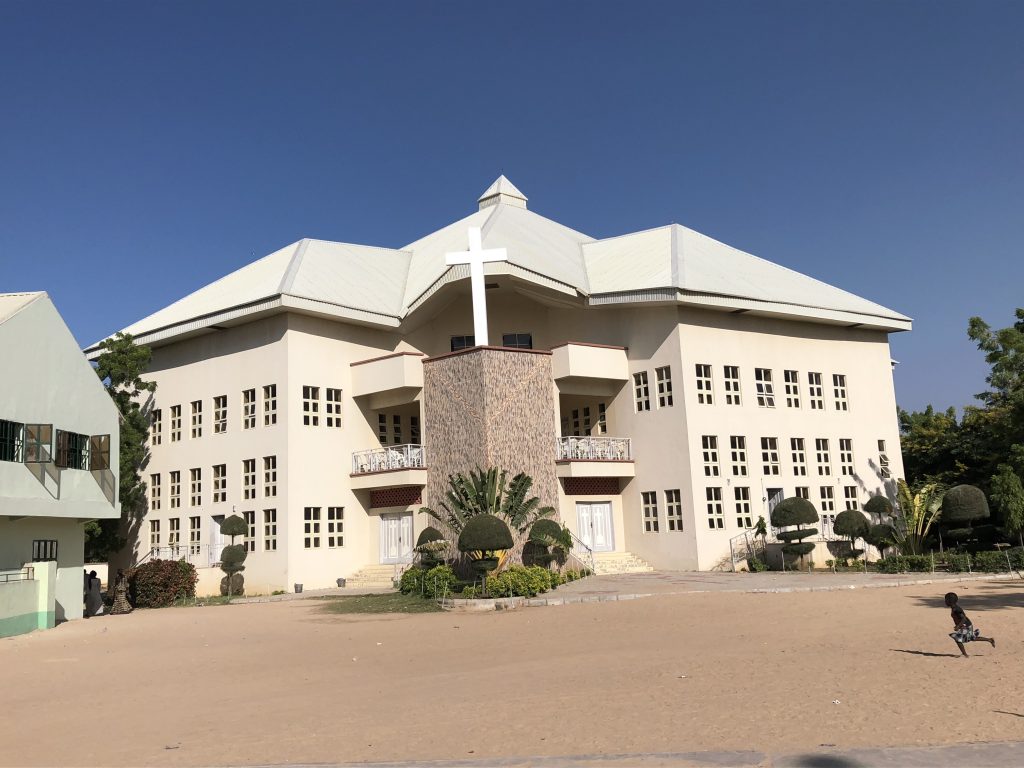
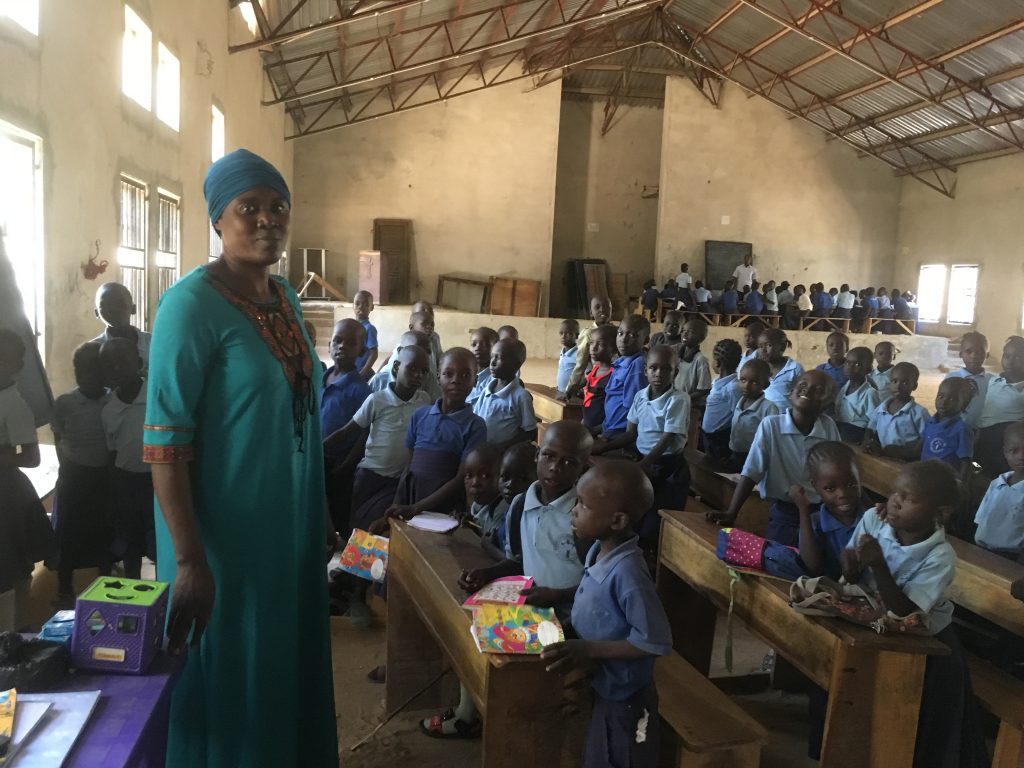
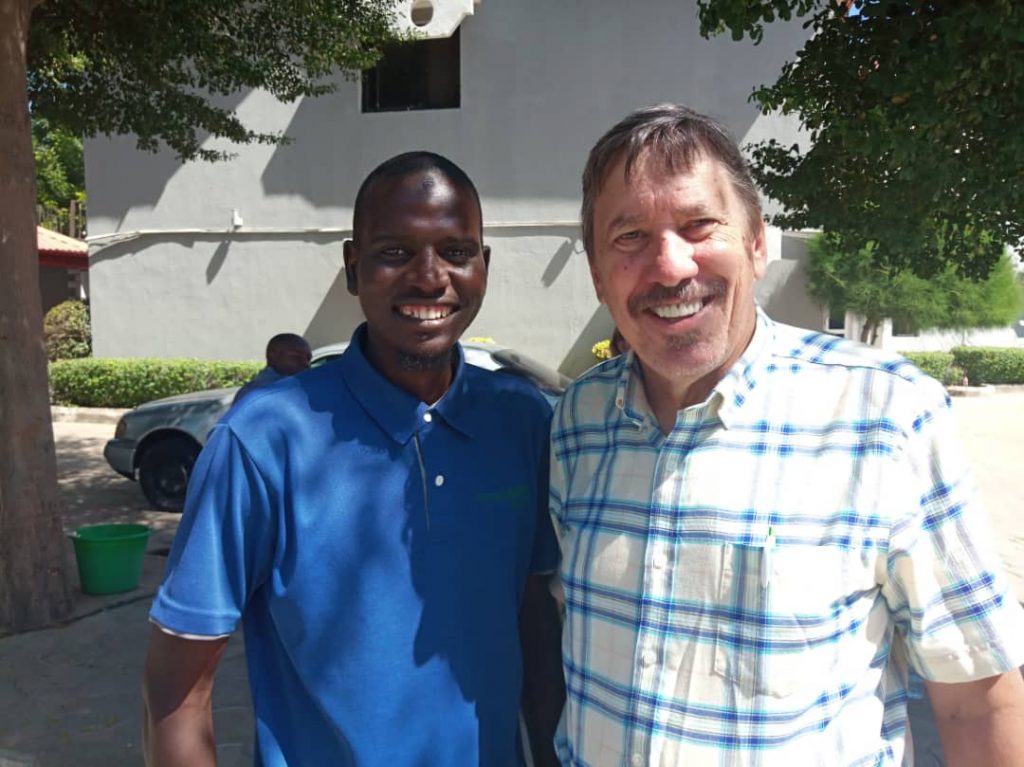
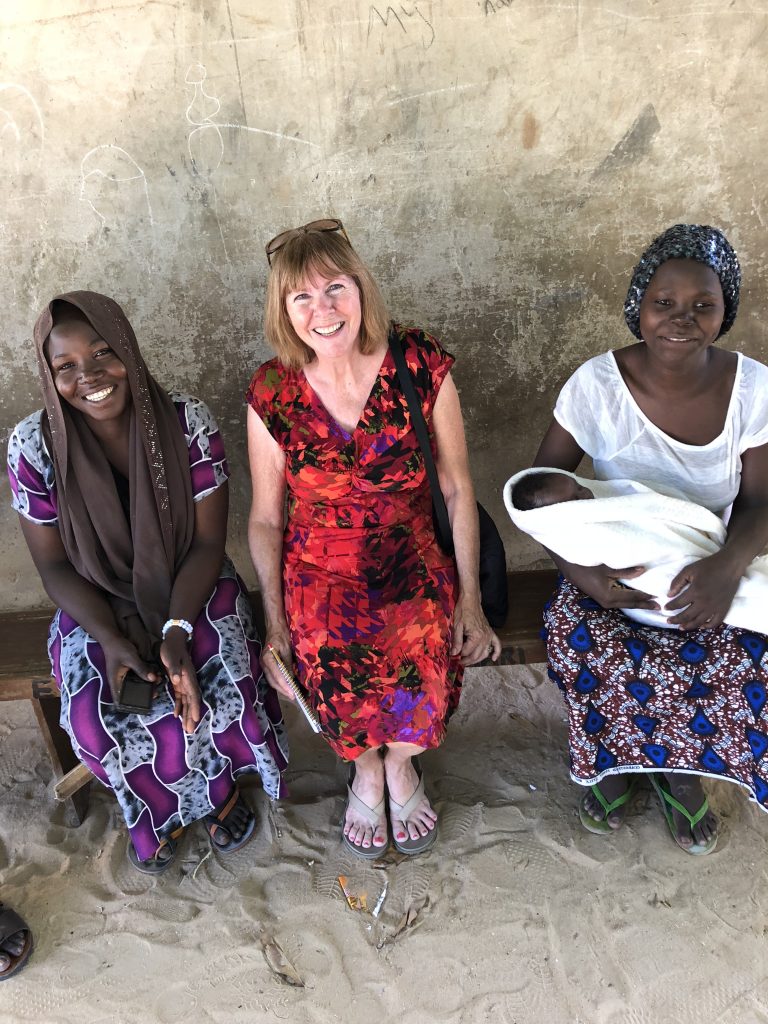
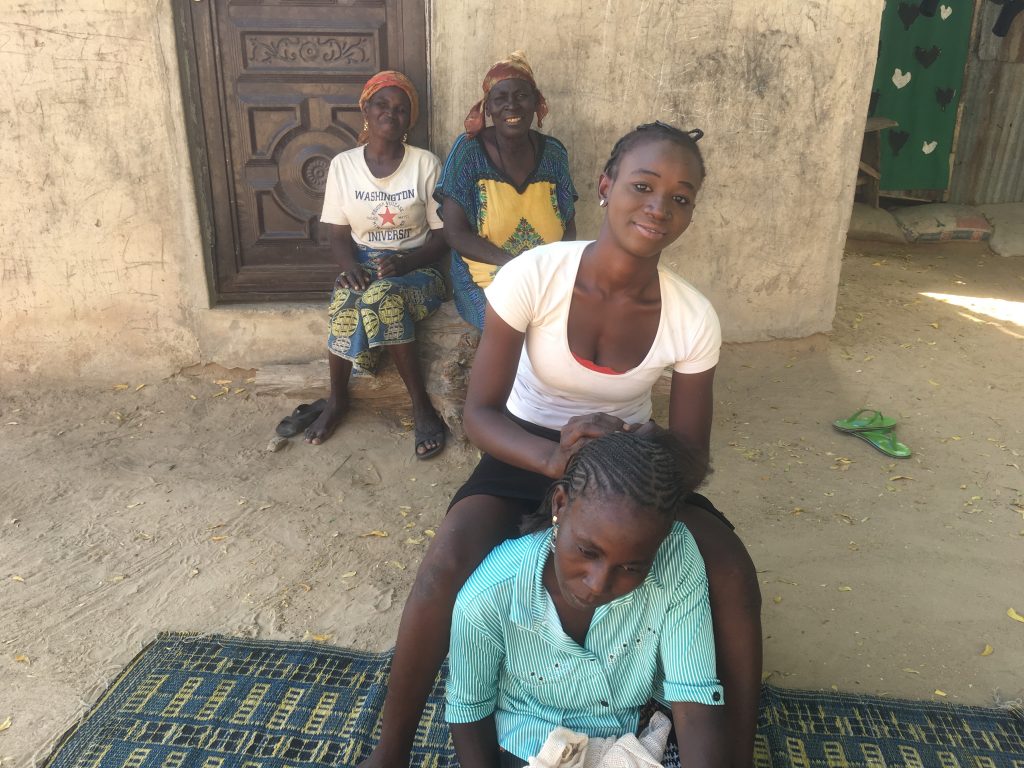
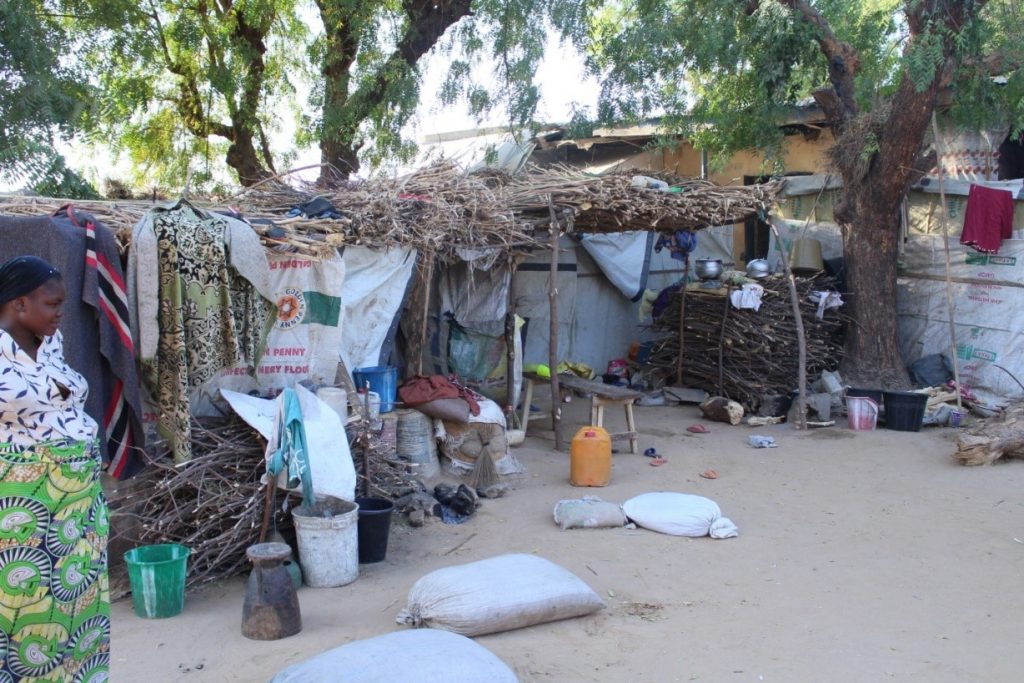
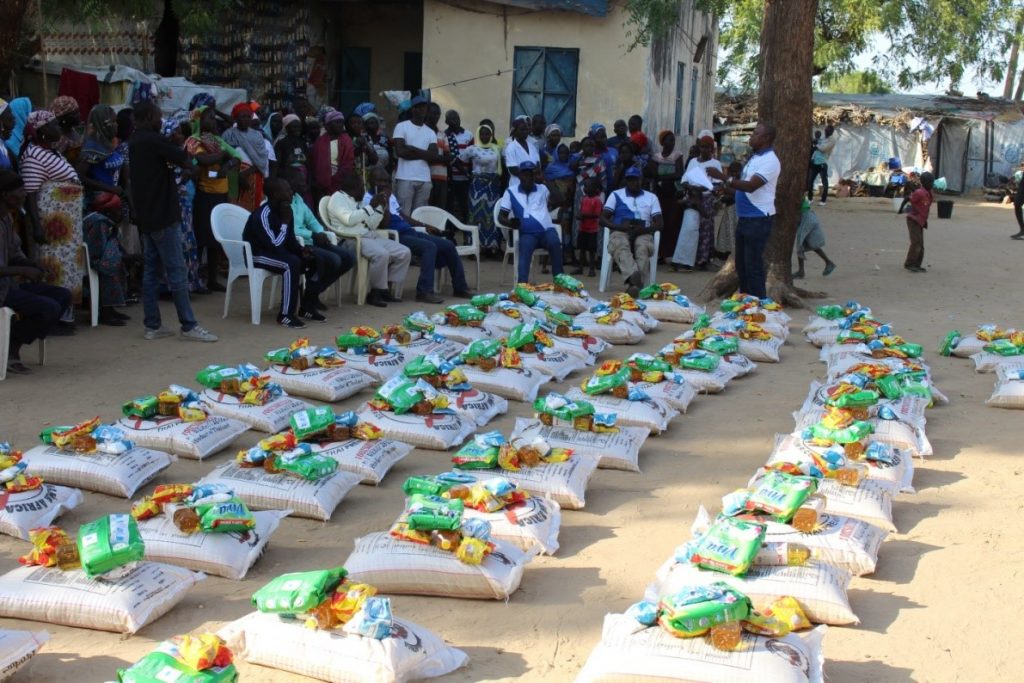
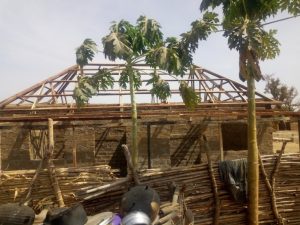
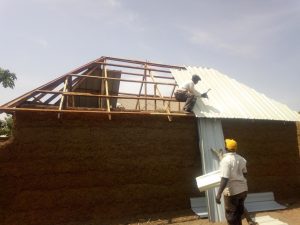 Pictures are by EYN Disaster Team
Pictures are by EYN Disaster Team